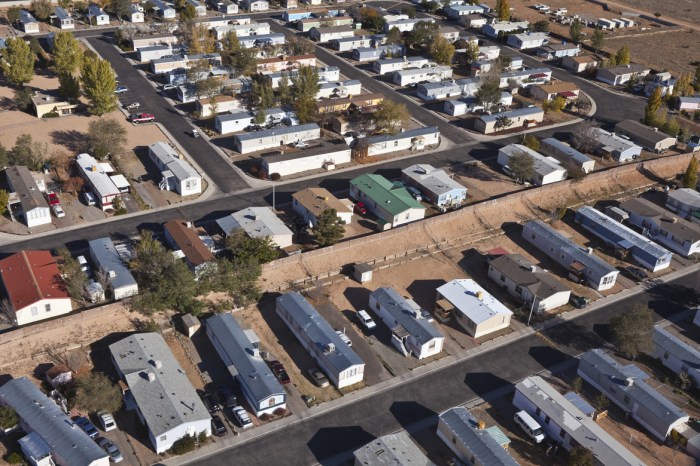15 Questions to Ask Before Moving into a Mobile Home Park – 15 Questions to Ask Before Moving into a Mobile Home Park? Totally get it! Finding the
-perfect* mobile home park in Bali (or anywhere!) is a vibe, but it’s also a serious decision. This isn’t just about finding a cute little place; it’s about community, cost, and making sure you’re totally stoked with your new pad. We’re diving deep into the essential questions you NEED to ask before signing that lease, so you can chill out knowing you’ve made the right choice.
Think of it as your pre-move checklist for ultimate Bali-style living.
This guide covers everything from park rules and the overall community feel to the nitty-gritty details about costs, maintenance, and even future development plans. We’ll help you navigate the process smoothly, so you can spend less time worrying and more time enjoying the amazing Balinese lifestyle. Let’s get started!
Park Rules and Regulations
Moving into a mobile home park is a significant decision, and understanding the park’s rules and regulations is crucial for a peaceful and harmonious living experience. Ignoring these rules can lead to unpleasant consequences, ranging from fines to eviction. A thorough understanding beforehand can prevent future stress and disappointment.Park rules and regulations vary widely, but some common areas of concern include pet ownership, vehicle parking, guest policies, and noise restrictions.
These rules are designed to maintain a safe and enjoyable environment for all residents. However, the clarity and consistency of enforcement can differ significantly between parks.
Pet Ownership Policies
Many mobile home parks have specific rules about pets. These often include breed restrictions, size limits, and limitations on the number of pets allowed per household. For instance, some parks might prohibit aggressive breeds like Pit Bulls or Rottweilers, while others may impose weight limits or require pet owners to provide proof of vaccinations and licenses. Failure to comply can result in fines or even eviction.
Comparing policies between parks reveals a wide range; some are quite lenient, while others are very strict. A situation where a rule might be unclear is when a park’s definition of a “small” dog is vague, leading to inconsistent application.
Vehicle Parking Regulations
Rules regarding vehicle parking often specify where vehicles can be parked, the number of vehicles allowed per lot, and whether recreational vehicles or boats are permitted. Some parks might have designated parking areas, while others allow parking only on designated pads. Violation of these rules could result in towing fees or fines. A comparison of different parks shows that some are stricter about the types of vehicles allowed, for instance, prohibiting oversized trucks or RVs, while others are more flexible.
An example of inconsistent enforcement might be a park where some residents consistently park extra vehicles without consequence, while others are penalized.
Guest Policies
Most mobile home parks have guidelines regarding guests. These typically specify the length of time guests can stay and whether guests are permitted to park overnight. Some parks might require guests to register with the management, while others might have limitations on the frequency of guest visits. Failure to comply with these rules could lead to warnings or fines.
The difference in guest policies between parks can be significant; some parks are very welcoming to guests, while others are more restrictive, possibly due to limited parking or concerns about community safety. An example of an unclear rule might be a vague definition of “frequent” guest visits, leading to arbitrary enforcement.
Noise Level Restrictions
Noise levels are a common area of regulation in mobile home parks. These rules often specify quiet hours and prohibit excessive noise at any time. The specific decibel limits or descriptions of what constitutes excessive noise can vary greatly. Consequences for violating noise regulations might include warnings, fines, or even eviction. The differences in noise regulations between parks can be stark, with some having very strict quiet hours and others being more lenient.
A situation where a rule might be inconsistently enforced is if loud parties are tolerated in some areas but not others, creating an unfair situation for residents.
Community Atmosphere and Resident Interactions
Choosing a mobile home park isn’t just about the structure; it’s about becoming part of a community. The atmosphere, the interactions between residents, and the overall feeling of safety significantly impact your quality of life. Understanding the social fabric of the park before moving in can prevent future disappointments and help you find a place where you truly belong.The resident profile significantly shapes the park’s atmosphere.
A park populated primarily by retirees will have a different feel than one with young families or a mix of ages and lifestyles. The level of interaction between residents can range from close-knit and highly social to more independent and reserved. Knowing what to expect in terms of community engagement is crucial for your personal happiness.
Typical Resident Profile
The typical resident profile significantly influences the overall atmosphere of a mobile home park. For instance, a park primarily housing retirees will likely have a quieter, more relaxed atmosphere compared to a park with a large number of young families, which may be more lively and bustling with children’s activities. Some parks cater to specific demographics, such as active adults or those seeking a pet-friendly environment.
Understanding the age range, family structures, and general lifestyles of the residents will help you determine if the community aligns with your preferences and expectations. Consider visiting the park at different times of the day to observe the residents and gauge the general ambiance. A park with a diverse age range might offer a richer social experience, while a community with a more homogenous age group might offer a more predictable and consistent atmosphere.
Community Engagement and Social Interaction
The level of community engagement varies greatly between mobile home parks. Some parks boast active resident associations that organize regular social events, potlucks, and community gatherings. Others might have a more laid-back atmosphere, with residents interacting primarily with their immediate neighbors. Observe the common areas – are they well-maintained and used frequently? Are there visible signs of resident interaction, such as friendly conversations or shared activities?
Inquire about resident association meetings or community events. The level of participation in these activities can indicate the degree of social interaction and the overall sense of community within the park. A vibrant community can provide a strong support network and foster a sense of belonging, while a more isolated community might suit those seeking a quieter lifestyle.
Safety and Security within the Park
Feeling safe and secure is paramount when choosing a place to live. Observe the park’s physical condition – is it well-lit at night? Are there security measures in place, such as gated entrances or security patrols? Speak with current residents about their experiences and perceptions of safety. Inquire about the park’s crime rate, if available, and any incidents that may have occurred in the past.
A well-maintained park with visible security measures and a sense of community watchfulness generally contributes to a safer environment. The perception of safety, however, is subjective and may vary from person to person.
Community Events and Activities
Many mobile home parks organize community events and activities to foster a sense of belonging and provide opportunities for social interaction among residents. These events can range from holiday celebrations and potlucks to game nights and craft workshops. Inquire about the frequency and types of events held within the park. A calendar of events or a community newsletter can provide valuable insight into the social life of the community.
The presence of regular community activities can significantly contribute to a stronger sense of community and a more enjoyable living experience. The active participation of residents in these events often indicates a thriving and welcoming community.
Park Amenities and Services
Choosing a mobile home park often hinges on more than just the rent; the amenities and services offered significantly impact your quality of life and overall cost of living. A well-maintained park with desirable amenities can enhance your comfort and convenience, while a lack of such features might lead to added expenses and inconvenience. Understanding the specifics of what’s provided and at what cost is crucial to making an informed decision.
Amenities Inventory and Condition
The availability and condition of park amenities are key factors to consider. A detailed assessment helps determine if the park meets your needs and expectations. The following table provides a snapshot of typical amenities and their potential states of repair. Remember to inspect these amenities yourself during your visit to the park.
| Amenity | Condition (Example) | Availability | Notes |
|---|---|---|---|
| Laundry Facilities | Well-maintained, modern machines; clean and well-lit | On-site | May require tokens or card payment |
| Swimming Pool | Clean and regularly maintained; adequate seating | Seasonal | Check for pool rules and operating hours |
| Clubhouse | Spacious and well-equipped; recently renovated | Available for resident events | May require reservation for private events |
| Playground | Modern equipment; well-maintained and safe | On-site | Check for age appropriateness of equipment |
| Pet Area | Designated area for pet waste disposal; fenced | On-site | Check for size and suitability for your pet |
Park Services Provided
Beyond amenities, essential services offered by the park directly influence the convenience and cost of living. These services often represent significant cost savings for residents, reducing the need for individual contracts or self-management.The park typically provides trash collection, ensuring cleanliness and hygiene throughout the community. Snow removal in winter months can be a substantial benefit, relieving residents of a potentially hazardous and time-consuming chore.
Some parks may also offer other services such as landscaping or pest control, reducing individual homeowner responsibilities. It’s essential to clarify which services are included in your monthly rent and which might incur extra charges.
Amenity Cost Comparison
Comparing amenity costs across different mobile home parks provides valuable context for assessing the value proposition of each. This comparison helps you understand whether the fees charged are competitive and reflect the quality of services provided. The table below demonstrates a hypothetical comparison. Note that actual costs vary significantly based on location, park size, and the level of service offered.
| Park Name | Monthly Rent (Example) | Pool Access Fee (Example) | Laundry Facility Cost (Example) | Trash Collection (Included/Extra) |
|---|---|---|---|---|
| Oakwood Estates | $800 | $25 | $1.50 per load | Included |
| Sunset Village | $750 | Included | $2.00 per load | Included |
| Pine Ridge Park | $900 | Included | Included | Included |
Amenities’ Influence on Cost of Living
The availability and cost of park amenities directly impact the overall cost of living. For example, a park with included laundry facilities and a pool eliminates the need for residents to purchase or maintain their own appliances and pay for external memberships. This translates to considerable savings over time. Conversely, a park lacking essential amenities might necessitate higher personal expenses to compensate for these shortcomings.
Factors such as proximity to grocery stores, public transportation, and other essential services also influence the overall cost of living, making a thorough assessment of all factors vital before choosing a park. Consider the time and money saved by having amenities readily available versus the extra expense of traveling elsewhere for them. A park with a robust amenity package often translates to a lower overall cost of living for residents.
Maintenance and Repairs
Choosing a mobile home park often feels like choosing a new home, and a crucial aspect of that choice hinges on the park’s commitment to maintaining a safe and comfortable living environment. Understanding the park’s maintenance policies and procedures is vital for ensuring peace of mind and avoiding potential headaches down the line. A well-maintained park reflects not only on the aesthetics but also on the overall health and safety of its residents.The park’s maintenance policies and procedures should be clearly Artikeld in your lease agreement or a separate document provided by the park management.
This documentation should detail the responsibilities of both the park management and the individual residents regarding maintenance and repairs. It should specify what the park is responsible for (e.g., common areas, infrastructure) and what residents are responsible for (e.g., interior of their mobile home, landscaping around their unit). Ideally, the policies will Artikel a clear process for reporting issues and a timeline for addressing them.
Reporting and Resolving Maintenance Issues
The process for reporting maintenance issues typically involves contacting the park management, either via phone, email, or a designated online portal. A detailed description of the problem, including location and severity, should be provided. The park management should then acknowledge receipt of the report and provide an estimated timeframe for addressing the issue. Following up on the initial report is crucial to ensure the problem is being addressed in a timely manner.
Some parks may have a formal system for tracking maintenance requests, allowing residents to monitor the progress of their report. A well-run park will prioritize urgent repairs, such as plumbing leaks or electrical malfunctions, over less pressing issues.
Common Maintenance Problems and Resolution Times
Common maintenance problems in mobile home parks include issues with plumbing (leaks, clogged drains), electrical problems (malfunctioning outlets, faulty wiring), landscaping (overgrown vegetation, damaged irrigation systems), and road or infrastructure repairs (potholes, damaged sidewalks). Resolution times for these issues vary depending on their severity and the park’s resources. Urgent repairs, such as a burst pipe, should be addressed within 24-48 hours, while less urgent issues, such as repainting a curb, might take several days or weeks.
For example, a clogged drain in a resident’s bathroom might be resolved within a day or two, while the repair of a damaged section of the park’s roadway might require more time due to the need for specialized equipment and materials.
Responsiveness of Park Management
Comparing the responsiveness of park management to maintenance requests with other communities requires anecdotal evidence and resident feedback. Online reviews and resident forums can provide insights into the experiences of others. For instance, a park with consistently positive reviews regarding maintenance might indicate a responsive and efficient management team. Conversely, a park with numerous complaints about slow or inadequate responses to maintenance requests should raise concerns.
While objective data on maintenance response times is often unavailable, the overall sentiment expressed by residents can be a helpful indicator. A park that actively communicates with residents about maintenance schedules and progress, providing regular updates, often demonstrates a higher level of responsiveness.
Financial Aspects and Costs: 15 Questions To Ask Before Moving Into A Mobile Home Park

Choosing a mobile home park involves significant financial considerations beyond just the purchase price of your home. Understanding the complete cost picture is crucial for budgeting effectively and avoiding unexpected expenses. Let’s explore the various financial aspects to ensure a smooth and financially responsible transition.The total cost of living in a mobile home park is a sum of several key components, each impacting your monthly budget differently.
Failing to account for all these elements can lead to financial strain and unexpected hardship. Transparency from the park management regarding these costs is paramount.
Lot Rent
Lot rent is the primary recurring expense in mobile home living. This fee covers the cost of leasing the land your mobile home sits on. Lot rent varies widely depending on location, park amenities, and the size of your lot. Expect monthly fees ranging from a few hundred dollars to over a thousand, depending on these factors. For example, a park in a rural area with basic amenities might charge $400 per month, while a park near a major city with extensive amenities could charge $1200 or more.
Always request a detailed breakdown of what’s included in the lot rent.
Utilities
Utilities are another significant expense, typically paid separately from the lot rent. These include water, sewer, electricity, gas, and trash removal. The costs for these utilities will depend on your consumption habits and the local rates. It’s essential to obtain estimates from local utility providers to accurately budget for these expenses. For example, electricity bills can fluctuate significantly depending on the season and your home’s energy efficiency.
HOA Fees
Many mobile home parks have Homeowners Associations (HOAs) that levy monthly or annual fees. These fees cover the upkeep of shared amenities, such as swimming pools, clubhouses, or landscaping. The amount of HOA fees varies greatly depending on the amenities offered and the size of the park. In some cases, HOA fees may also cover security or maintenance of common areas.
It is essential to understand what services these fees cover and whether they are mandatory.
Potential Fee Increases
Be aware that lot rent, utility costs, and HOA fees are subject to increases over time. Park management should disclose the park’s history of fee increases, if any, and any anticipated future increases. This information is crucial for long-term financial planning. For instance, a park might increase lot rent by a small percentage annually to cover rising operational costs or to reflect market trends.
Understanding the potential for increases allows you to proactively adjust your budget.
Payment Process and Late Payment Consequences
The mobile home park will Artikel its preferred payment method and schedule. Common options include online payments, mailed checks, or in-person payments. Inquire about any penalties or late fees for late payments. Late payment fees can be substantial, sometimes exceeding the cost of the missed payment itself. Understanding the payment process and potential penalties ensures you avoid unnecessary financial burdens.
For example, a late payment fee might be $50 or a percentage of the total monthly fee, compounding if the payment remains outstanding.
Cost Comparison
Before committing to a mobile home park, compare the total cost of living there to other housing options in the area, such as renting an apartment or buying a traditional home. Consider the monthly expenses (lot rent, utilities, HOA fees, property taxes, and insurance) to determine which option aligns best with your financial situation. This comparative analysis allows for a well-informed decision, ensuring you’re making the most financially sound choice for your needs.
For example, you might compare the total monthly cost of living in the mobile home park to the rent of a comparable apartment in the same area, taking into account all associated expenses.
Lease Agreement and Ownership
Choosing a mobile home park often feels like choosing a new community, a place to put down roots, even if those roots are on rented land. Understanding the lease agreement is crucial to ensuring a peaceful and secure tenancy. This section delves into the key aspects of the lease, clarifying your rights and responsibilities as a resident.The lease agreement acts as a legally binding contract between you and the park owner, outlining the terms and conditions of your residency.
It details everything from the monthly rent and payment schedule to the rules governing property upkeep and resident behavior. Reading it carefully, ideally with legal counsel, is paramount. Think of it as the foundation upon which your mobile home life will be built.
Lease Agreement Terms and Conditions
The lease agreement typically specifies the length of the lease (often annually), the amount of rent, and any applicable late fees. It will also Artikel permitted uses of the property, restrictions on pets, vehicle parking, and modifications to the mobile home itself. Specific clauses might address subletting, guest policies, and procedures for addressing complaints or maintenance issues. For example, a lease might stipulate that exterior paint colors must be approved by the park management, or that only certain types of sheds are allowed.
Understanding these specifics is key to avoiding future conflicts.
Lease Renewal Process
Renewing your lease usually involves submitting a written application to the park management within a specified timeframe before the current lease expires. This application may require updated information, such as proof of insurance or income verification. The park owner has the right to refuse renewal under certain circumstances, such as repeated violations of park rules, non-payment of rent, or damage to the property.
However, these reasons must generally be clearly stated in the lease and legally justifiable. Negotiating lease terms, such as rent increases, is also possible during the renewal process, providing an opportunity for open communication and potentially a mutually agreeable outcome.
Rights and Responsibilities of Park Owners and Residents, 15 Questions to Ask Before Moving into a Mobile Home Park
The lease agreement clearly defines the responsibilities of both the park owner and the resident. The park owner is typically responsible for maintaining the common areas, ensuring the safety and security of the park, and providing essential services like water and sewage disposal. Residents, in turn, are typically responsible for maintaining their own mobile homes and yards, adhering to park rules, and paying rent on time.
Understanding these reciprocal obligations is fundamental to a harmonious living environment. For example, the park owner might be responsible for road maintenance, while the resident is responsible for lawn care.
Potential Legal Issues and Ambiguities
Occasionally, lease agreements contain ambiguous clauses or terms that could lead to legal disputes. For instance, vague wording regarding pet restrictions or property modifications can create uncertainty. Similarly, unclear stipulations about rent increases or eviction procedures can cause problems. Seeking legal advice before signing a lease is highly recommended, especially if you notice any such ambiguities. A lawyer can help clarify potentially problematic clauses and ensure your rights are protected.
For example, a lease might mention “reasonable” rent increases, but a lawyer can help define what constitutes “reasonable” in your specific location and context.
Location and Accessibility
Choosing a mobile home park involves more than just the park itself; it’s about integrating into a new community and ensuring easy access to daily necessities. The location’s convenience and accessibility directly impact your quality of life, influencing everything from your commute to your access to healthcare. A well-located park can significantly reduce stress and enhance your overall experience.The park’s location and proximity to essential services are crucial factors to consider.
A convenient location near grocery stores, pharmacies, hospitals, and other essential services minimizes travel time and expenses. Imagine the peace of mind knowing that a hospital is just a short drive away, or that you can easily walk to the grocery store for your weekly shopping. This convenience becomes even more significant in situations requiring urgent medical attention or quick access to everyday necessities.
Proximity to Essential Services
The ideal mobile home park boasts a location close to a variety of essential services. Consider the distance to grocery stores, pharmacies, banks, and medical facilities. A short drive or even walking distance to these amenities significantly improves the convenience of daily life. For example, a park situated near a major shopping center offers easy access to a wider range of goods and services.
Conversely, a remote location might require longer commutes and could increase transportation costs. A realistic assessment of these distances, considering your personal mobility and transportation options, is vital.
Public Transportation Accessibility
Access to public transportation can greatly impact your lifestyle and mobility, especially if you don’t own a car. Consider the availability and frequency of bus routes, train lines, or ride-sharing services near the mobile home park. A park located near a major transportation hub provides easy access to various destinations, opening up more employment and recreational opportunities. For instance, a park with frequent bus service to a downtown area allows for convenient access to work, entertainment, and cultural events.
Conversely, a park lacking public transport might necessitate reliance on personal vehicles, increasing costs and limiting accessibility.
Overall Convenience and Accessibility
The overall convenience of the park’s location extends beyond proximity to essential services and public transport. It encompasses factors such as the ease of access to major highways, the surrounding neighborhood’s safety, and the overall ambiance of the area. A park situated near a busy highway might offer easy access to other parts of the city, but it could also be noisy and less peaceful.
Conversely, a quieter location further from major roads might provide more tranquility but could result in longer commutes. The ideal location balances convenience with a desirable living environment. Weighing these factors carefully will help determine the overall suitability of the park’s location to your lifestyle and needs.
Comparison to Other Living Options
Before making a decision, compare the location and accessibility of the mobile home park to other potential living options, such as apartments or single-family homes in the same area. Consider factors such as commute times, proximity to work, and access to amenities. For example, an apartment in a city center might offer better access to public transportation and amenities, but it might also be more expensive.
A single-family home in the suburbs might offer more space and privacy, but it might involve a longer commute. Comparing these options helps you make an informed decision based on your specific priorities and needs.
Safety and Security
Peace of mind is paramount when choosing a place to call home, and that includes feeling safe and secure in your surroundings. Understanding the safety measures in place within a mobile home park is crucial before making such a significant decision. Let’s explore the key aspects that contribute to a secure living environment.The security measures implemented within a mobile home park vary considerably.
Some parks invest heavily in comprehensive security systems, while others rely on a more basic approach. A thorough assessment of the security provisions is vital.
Security Measures in the Park
The level of security within a mobile home park can significantly impact your sense of safety. Features such as perimeter fencing, well-lit streets and pathways, and security cameras can deter crime and provide a greater sense of security. The presence of a security guard or patrol service further enhances safety. Inquire about the specific security measures implemented in the park you are considering.
For example, some parks utilize gated access, requiring residents and guests to use a key card or code to enter, creating an additional layer of security. Others might rely on a combination of these features, creating a layered security system. The more comprehensive the security measures, the greater the peace of mind for residents.
Crime Rate in the Surrounding Area
Understanding the crime rate in the area surrounding the mobile home park is essential. You can research crime statistics online through local law enforcement websites or community resources. Look for data on property crime, violent crime, and other relevant statistics for the immediate vicinity. While a park may have excellent internal security, the surrounding area’s safety is equally important.
A low crime rate indicates a safer environment, contributing to a more peaceful and secure lifestyle.
Emergency Procedures
Knowing the park’s emergency procedures is crucial for your safety and well-being. Ask about the procedures for handling various emergencies, including fire, medical emergencies, and severe weather events. Find out if the park has an emergency contact list, an established communication system for emergencies, and clear evacuation plans. Familiarity with these procedures can help you react appropriately and efficiently in a crisis situation.
A well-defined emergency plan instills confidence and provides a sense of preparedness.
Safety Tips for Residents
Maintaining personal safety within the mobile home park requires a proactive approach. A few simple precautions can significantly enhance your security.
It is important to be mindful of your surroundings and report any suspicious activity to park management immediately. This prompt reporting helps maintain a safe environment for everyone. Familiarize yourself with the emergency procedures and keep emergency contact information readily accessible. Consider installing additional security measures in your home, such as smoke detectors and security systems, for enhanced protection.
Remember to lock your doors and windows when you are away from your home, and be cautious about opening your door to strangers. Building strong relationships with your neighbors can create a sense of community and provide an extra layer of security. Sharing contact information and keeping an eye out for each other can deter criminal activity and provide mutual support in times of need.
Utilities and Infrastructure
Moving into a new mobile home park involves more than just finding the perfect lot; understanding the utilities and infrastructure is crucial for a comfortable and stress-free living experience. The availability, reliability, and cost of utilities can significantly impact your monthly budget and overall quality of life. A thorough investigation before signing a lease will save you potential headaches and financial burdens down the line.The types of utilities available vary widely between mobile home parks.
While some offer a comprehensive package, others may require you to arrange services individually. Understanding the park’s infrastructure and its capacity to handle the demands of its residents is paramount.
Utility Availability
The most common utilities include water, electricity, sewer, and sometimes natural gas. However, internet access, cable television, and even trash collection services can also be provided by the park or through third-party providers. It’s essential to clarify which utilities are included in your lot rent and which ones you’ll need to arrange separately. For example, some parks provide water and sewer connections, but you’ll have to contract separately with an electricity provider like your local power company.
Others may offer bundled packages that include internet and cable TV at an additional monthly fee.
Utility Setup Process
The process of setting up utilities differs depending on the park and the specific utility. Some parks have streamlined systems where they handle the connection for you, while others require you to contact the utility companies directly. You’ll typically need to provide your lot number, proof of residency, and other necessary documentation. Expect some delays, especially if the park has a high volume of new residents or if you’re setting up multiple services simultaneously.
For instance, scheduling your electricity connection might involve waiting a week or two for an electrician to visit your lot and complete the installation.
Utility Costs
Utility costs can vary significantly depending on your usage, the time of year, and the specific rates charged by the providers. It’s vital to obtain estimates from the utility companies and factor these costs into your monthly budget. For example, electricity costs during the summer months (due to air conditioning usage) can be substantially higher than during the winter.
Similarly, water usage can fluctuate based on individual habits and seasonal needs for gardening or lawn care. Many parks also charge a monthly fee for water and sewer, in addition to the usage-based charges from the provider.
Utility Reliability
The reliability of utilities is a key consideration when choosing a mobile home park. Inquire about the history of outages, maintenance schedules, and the park’s response time to service disruptions. A park with a well-maintained infrastructure and a responsive management team is more likely to provide consistent utility service. It’s prudent to ask about the park’s emergency procedures for utility failures, especially during extreme weather conditions.
For instance, a park with a history of frequent power outages during storms might require you to have a backup power source for essential appliances.
Future Development Plans
Choosing a mobile home park is a significant decision, impacting not only your present comfort but also your future peace of mind. Understanding the park’s long-term vision is crucial for ensuring your investment aligns with your expectations and lifestyle. A proactive management team will openly communicate their plans, offering transparency and a sense of security to residents.Knowing about planned developments allows you to make an informed decision about whether the park’s trajectory matches your own.
This knowledge can prevent future disappointments and ensure a harmonious living experience for years to come. This section details what you should inquire about concerning future development within the park.
Planned Improvements and Developments
The park’s management should be able to Artikel any planned improvements or expansions. These might include upgrades to existing amenities, such as the addition of a new community center, a renovated swimming pool, or an expansion of the landscaping. New infrastructure, like improved roads or updated utility systems, could also be part of the plan. For example, a park might announce plans to install a new playground, improving the recreational options for families.
Another example could be the implementation of a comprehensive water conservation program, aiming to reduce water bills for residents while also promoting environmental responsibility.
Impact of Developments on Residents
It is essential to understand how these developments will affect current residents. Will there be temporary disruptions during construction? Will there be increased fees associated with the upgrades? Will there be any changes to parking arrangements or access to certain areas? A responsible management team will address these concerns transparently, explaining potential inconveniences and how they will mitigate negative impacts.
For instance, a planned road resurfacing project might cause temporary traffic congestion, but the management could provide alternative routes and communicate a clear timeline for completion. Similarly, the addition of new amenities might necessitate a slight increase in monthly fees, but this should be communicated well in advance, giving residents time to adjust their budgets.
Potential Changes to Fees or Rules
Any proposed developments should have associated cost implications. The park management needs to clearly communicate how these developments will impact monthly fees or other charges. This could involve a temporary increase during construction, a permanent adjustment to reflect the improved amenities, or changes to park rules related to the use of new facilities. For instance, the installation of a new security system might lead to a small increase in monthly rent, but this would be offset by increased safety and peace of mind.
Similarly, the addition of a new clubhouse might require residents to adhere to new rules regarding its usage, such as reservation policies or quiet hours.
Long-Term Vision for the Park
Inquiring about the park’s long-term vision offers insight into its management’s commitment to its residents and its future. Is the park aiming to maintain its current character, or does it envision significant transformations? This understanding will help determine if the park’s trajectory aligns with your personal preferences and long-term plans. For example, a park might aim to become a more eco-friendly community, implementing sustainable practices and encouraging resident participation in environmental initiatives.
Conversely, another park might focus on attracting a younger demographic, potentially leading to changes in the overall community atmosphere.
Closing Notes
So, there you have it – your essential guide to finding the perfect mobile home park! Remember, asking the right questions is key to avoiding any future headaches. Don’t be shy – get all the info you need to ensure a smooth move and a totally awesome living experience. Happy house hunting! And remember, finding the right community is just as important as finding the right home – embrace the Bali vibes and find your perfect slice of paradise.
Top FAQs
What if the park rules seem unfair or overly restrictive?
It’s important to weigh the pros and cons. Are the rules truly unreasonable, or are they in place for the overall good of the community? Consider negotiating or seeking clarification.
How can I verify the accuracy of the information provided by the park management?
Talk to current residents! Their firsthand experiences will provide valuable insights you won’t find in brochures.
What should I do if I experience a maintenance issue that isn’t resolved promptly?
Document everything – dates, times, descriptions, and follow-up communications. Escalate the issue to higher management if necessary, and consider legal advice if it’s a significant problem.
Are there any hidden fees I should be aware of?
Read the lease agreement carefully! Look for clauses about late fees, administrative charges, or other potential costs that aren’t immediately obvious.
What are my rights if I need to break my lease early?
Review your lease for specific clauses related to early termination. There may be penalties involved, so understand your obligations.




